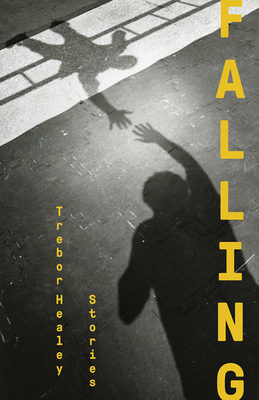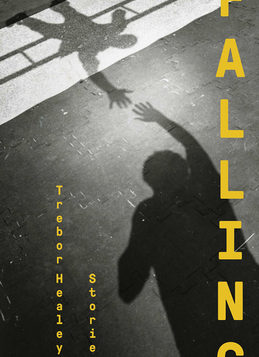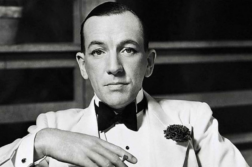 Falling
Falling
by Trebor Healey
University of Wisconsin Press. 262 pages, $xxx
FALLING is a collection of ten stories by American writer Trebor Healey, whose permanent address is in Los Angeles but who’s gone into a kind of voluntary exile in Mexico. There he divides his time between writing and helping refugees, mainly from Guatemala and Honduras, who are dealing with immigration legalities, language barriers, and other obstacles. All but two of his stories are set in Latin American countries, mainly Mexico but also Argentina, where Healey has also spent a lot of time.
There’s a sorrowful edge to almost all of these tales, which look back on losses of various kinds (in two cases that of a beloved son) and try to work through mourning to find redemption. Often the narrator stumbles upon doubles à la Edgar Allen Poe. A good example: “I wanted him to just be my son, and I wanted to protect him, like I had wanted to protect Sofia, to return him to the Orchid to bus tables. It was as if I wanted to erase the last three months, save him from the fate I had led him into.” The narrator’s voice sustains an intense and authentic tenor.
Gay themes crop up persistently throughout the stories, but their presence is often understated. Most of the narrators are straight men with big hearts who are looking back over failed relationships and now making a go of it on their own. A major exception is “Rite of Passage,” the one story that reads autobiographically as a gay man’s experiences in San Francisco, which is where Healey grew up, and across the American Southwest, with episodes linked by the narrator’s relationship with his surprisingly understanding father. The only other U.S. story offers an uproarious interlude. “The Works of Alexander Axelrod O’Rourke” is a madcap ballad of a native alien whose fabulous imagination is doomed to abject failure—as it must be in this speeded-up, superficial society of ours.
Mexico, on the other hand, doesn’t seem insane at all. Here the suffering is palpable, the violence is more present, and there can be no peace without justice. Here one finds compassion, especially in the touching (but far from sentimental) story of the two underage Honduran brothers, “Abilardo and Rodrigo,” who are doomed to lose their mother. It falls to the narrator to break it to them. In extremis, he opts to hide the news of their mother’s suicide à la Good Bye Lenin.
Many of these stories use the device of the story within the story, the narrator a kind of investigator digging up what he can of past lives. Keen insights, hard truths, and felicitous writing await the reader on every page. Be prepared for the solitary outlaw ethos of this narrator. As an outsider himself, Healey takes his inspiration from Roberto Bolaño, the Chilean poet and fiction writer who died at age fifty in 2003. In his story “Ghost,” Healey hails him a Jack Kerouac-like figure, only better. The ghost of Bolaño, the outsider–observer who sits writing in cafés, so haunts the narrator’s imagination that he hallucinates the poet walking about in the middle of Mexico City.
One arresting story was the last, “Orchid,” which is all about Argentinian politics, with reference to the populism of Evita Peron. This plot goes a little heavy on twists and turns, but I wasn’t looking for a light read when I started this volume, and the story does play out its reference to Borges’ labyrinth. Its sister story, “A Geography of Plants,” is also set in Argentina and also obsessed with revolution. But, says the narrator: “I was an artist, as interested in beauty as in truth, which for a politically aware artist must include justice.” Which reminds me of something Mario Vargas Llosa once said about the act of writing as a peaceful rebellion against the real world.
David Tacium, PhD, based in Montreal, is the author of the recently published novel Taking Down the Golden Boy.







Discussion1 Comment
Well written and thought out review. I have been following Healey for years now and he gets better and deeper in different ways. I have really appreciated his former works as well, especially A Horse Named Sorrow and Faun, two totally different directions but equally worth the read.